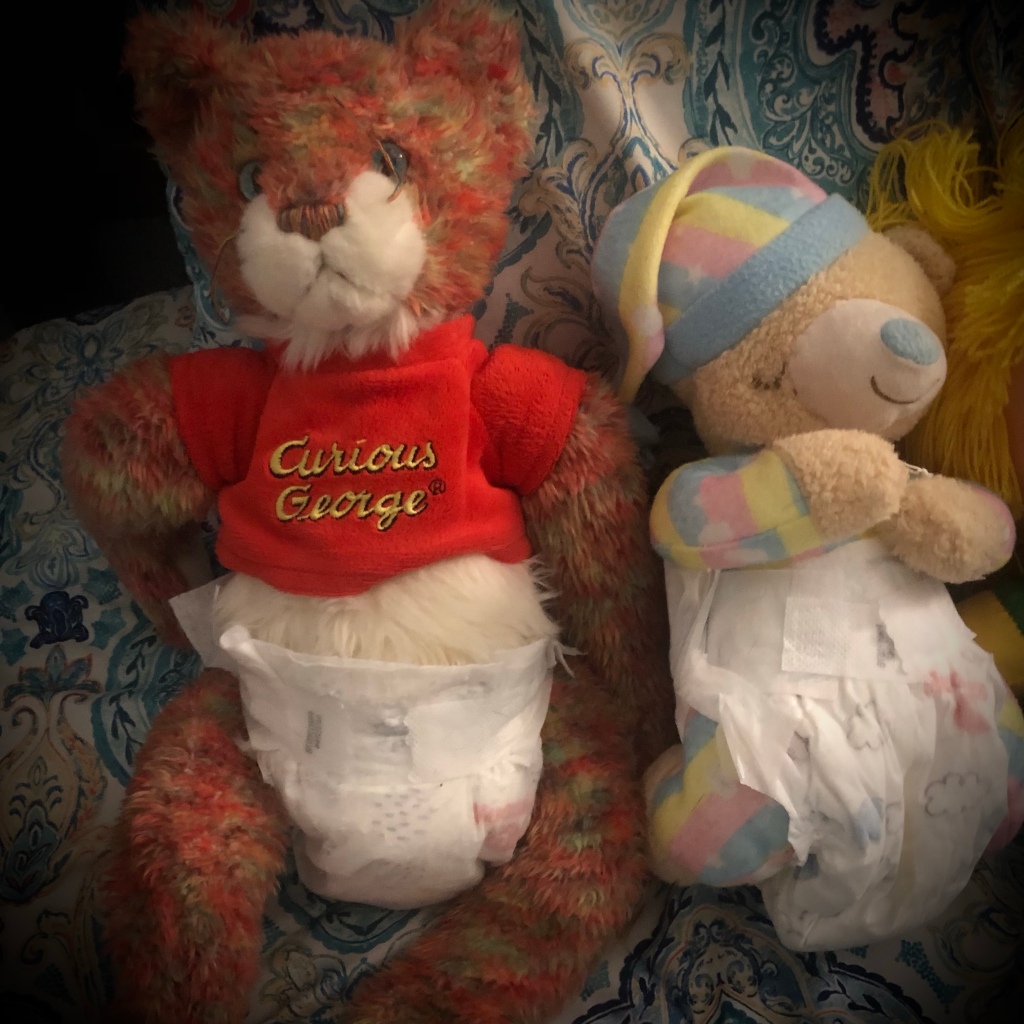After many years of mentioning it, my husband and I finally visited the Country Doctor Museum. Off the beaten path in a nearby town, the museum consists of three small buildings, one of which is a combination of two actual 19th century doctors’ offices. The museum began as a memorial to rural physicians, expanding over time to include the nursing profession, home remedies, and the apothecary. It now houses an impressive collection of artifacts from the 18th to early 20th centuries.
I expected to learn things. I didn’t know, for example, that this is the oldest museum in the United States dedicated to the history of rural healthcare, or that it’s been taken over by my alma mater, East Carolina University. The docent said: “That saved us during COVID. We had the funding to reopen. Many private-funded museums could not.”
I mourned the loss of museums that had to close for good as we crossed the threshold of the apothecary… where an otherworldly, unanticipated, delicious strangeness awaited on that side of the portal…
A mammoth cabinet of gleaming cherry wood with ornate scrollwork, sunbursts, and Victorian spindles runs the length of the left wall. On its shelves, behind glass doors, stand hundreds of large jars bearing white labels and names of their contents—assorted dried herbs, powders, and liquids—in large black script: Crocus, Cloves, Mace, Valeria, Aq. Rosa., Pond’s Ext., Sol. Benedict Quantitative, Lotio Pilocart Morrow, Pepsengia. Some labels look new; others appear to be timeworn, the lettering nearly illegible. The docent speaks in a low, unmodulated voice about paregoric, opium, mercury, and poisons that were often part of remedies mixed by the apothecary, dispensed to a largely illiterate population which couldn’t read labels. In order to prevent overdose, some of the pills were fashioned into tiny black coffins.
As I look at these coffin-pills, trying to imagine ingesting such a thing, the docent points to the show globes in the cabinet. Tall, decanter-like vessels of different-colored liquids—green, yellow, blue, red—stacked upon each other in rounded triple towers. They seem art deco or like something from the 1960s. “Show globes are an official symbol, like the striped pole is to the barber,” says the docent. “People entering a town would know this is where to find the apothecary. The show globes were displayed in the shop’s front window, and every color had a meaning. The apothecary kept a recipe for mixing dye in water and a guide for when to display certain colors. Red, for example, would warn travelers that there’s widespread sickness in this town, an epidemic…”
I turn to see a large, single-tier show globe with antique bronze trim sitting alone on a pedestal behind me. Full to the brim with bright red, transparent liquid.
Of course, I think. The docent is wearing a mask. I wonder if the all the museum guides came by cover of night in March of 2020 to mix this red solution. And if it will remain red until COVID-19 makes its full departure.

Hanging show globes were sometimes mounted in the apothecary’s shop window.
The docent is now speaking of bloodletting and leeches.
There are, in fact, live leeches on display. They’re floating contentedly in a clear glass bowl of water beside a large vase decorated with a delicate floral pattern…along with the word LEECHES in utterly incongruous, glorious gilt adorning a black banner.

The museum’s leech jar is very similar to this, only with a sweet pattern of tiny pink flowers and vines.
“The apothecary kept leeches in leech jars such as this…” the docent is saying. “It was advertising. The fancier the jar, the better the quality, people believed…”
I’m awed by the jar, that it was designed solely to hold worms. Albeit important ones… and I read once, somewhere, that leeches are amazing escape artists: A more recent druggist had a leech that chewed through a modest gauze lid covering; he found the escapee several days later, lounging on the turntable of his record player.
The docent continues: “Leeches are still in use today. We had a plastic surgeon visit once. He told us of reattaching someone’s ear and using a leech there to increase the blood flow for healing…leeches are often used when fingers are reattached…you don’t feel the leech, of course…”
We are about to move into the next room where there’s a real human skull and kits of amputation tools from the Civil War era, but I want to linger here, I have a thousand questions about the tinctures and remedies and practices…and I want to study the magnificent 1700s era painting on the right wall, above the counter where the apothecary would make pills by mixing powders and dough, rolling and cutting with a pill-roller. The artwork depicts Christ as an apothecary, with elaborate calligraphy in old German. It presides over the whole room.
But time does not wait; it moves on and so must I… prying myself away from the painting and jars and show globes, I content myself with the knowledge that a healing-herb garden waits at the end of the tour. I hurry into the next room just to make the intriguing discovery that I am now standing in the office of a Victorian doctor whose not-very-common surname is my own maiden name.
What a peculiar sense of belonging…and, I think, beginning, of something I’ve yet to name.
*******
I plan to write more about the painting on Thursday.
You can visit the Country Doctor Museum online to learn more and to view many fascinating artifacts.







